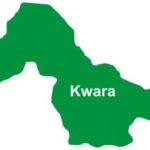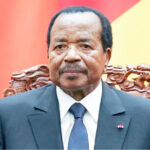In a nation where healthcare remains a pressing concern, the establishment of a Health Development Bank of Nigeria has emerged as a crucial proposition. This visionary initiative stems from several critical factors plaguing the nation’s healthcare landscape and seeks to address them comprehensively. Among the key issues driving the case for this bank are poor funding, low absorptive capacity, equipment and technology deficits, and the imperative to tie investments to results.
Additionally, this initiative aims to counteract health tourism, reinvigorate the pharmaceutical and medical device industry; encourage private sector involvement, foster critical human resources development, enhance health financing sustainability, and bolster the healthcare sector’s contribution to economic growth.
One of the fundamental challenges facing Nigeria’s healthcare sector is the perennial issue of inadequate funding. Over the past five years, health sector allocations have averaged a meagre 4.982 percent of the federal budget (2018-2022). These allocations encompass capital and recurrent expenditures, statutory transfers to the Basic Health Care Provision Fund; service-wide votes, hazard allowances, and health insurance for military retirees.
Shockingly, the capital component, which could fund infrastructure upgrades, averaged just 17.088 percent of this allocation, amounting to a paltry N540.37 billion for the five-year period. This woefully insufficient budgeting has hindered critical investments in the sector, with increased allocations primarily channelled into recurrent expenses.
Regrettably, this lack of funding is mirrored across Nigeria’s states, where similar modest budgets have been allocated to healthcare. Without substantial investment, the nation’s health infrastructure, services, and equipment remain suboptimal.
In addition to the scarcity of funds, the Nigerian healthcare system grapples with a low absorptive capacity. Allocations frequently surpass actual utilization, and in 2021, due to procurement irregularities, the procurement function was transferred from the Federal Ministry of Health to the Federal Ministry of Agriculture. This illustrates the inefficiency and ineffectiveness of routing investments through the Ministry of Health, as it provides no guarantee of proper utilization.
Another pressing issue is the glaring inadequacy of equipment and technology in healthcare facilities. According to the World Health Organization (WHO), only a quarter of Primary Health Centres (PHCs) have the requisite equipment, and merely 20 percent of these centres remain functional. Furthermore, secondary and tertiary government-owned healthcare facilities lack essential equipment, rendering many medical services substandard or inaccessible.
To address these challenges, investments in modern equipment and technology are urgently needed, along with improved inventory management, maintenance, and training. The implementation of digital technology for telemedicine and e-health is also imperative to enhance healthcare access and quality.
The proposed Health Development Bank offers a novel approach by tying investments to results.
Many healthcare facilities, particularly at the primary and secondary levels, suffer from inadequate access to electricity, water, and sanitation.
A robust health sector demands these basic infrastructural components. Experts estimate that Nigeria needs 386,000 additional beds and $82 billion in healthcare real estate investments to reach the global average of 2.7 beds per thousand people.
The Health Bank aims to support infrastructure provision and upgrades to address this glaring deficit.
The advocacy for establishment of the Health Development Bank of Nigeria is a visionary move by the Centre for Social Justice (CSJ) that holds the promise of transforming the nation’s healthcare landscape. By addressing critical issues such as funding, infrastructure, technology, human resources, and research, this bank has the potential to elevate Nigeria’s healthcare system to new heights.
Victor Okeke wrote from CSJ Nigeria, Abuja
 Join Daily Trust WhatsApp Community For Quick Access To News and Happenings Around You.
Join Daily Trust WhatsApp Community For Quick Access To News and Happenings Around You.

